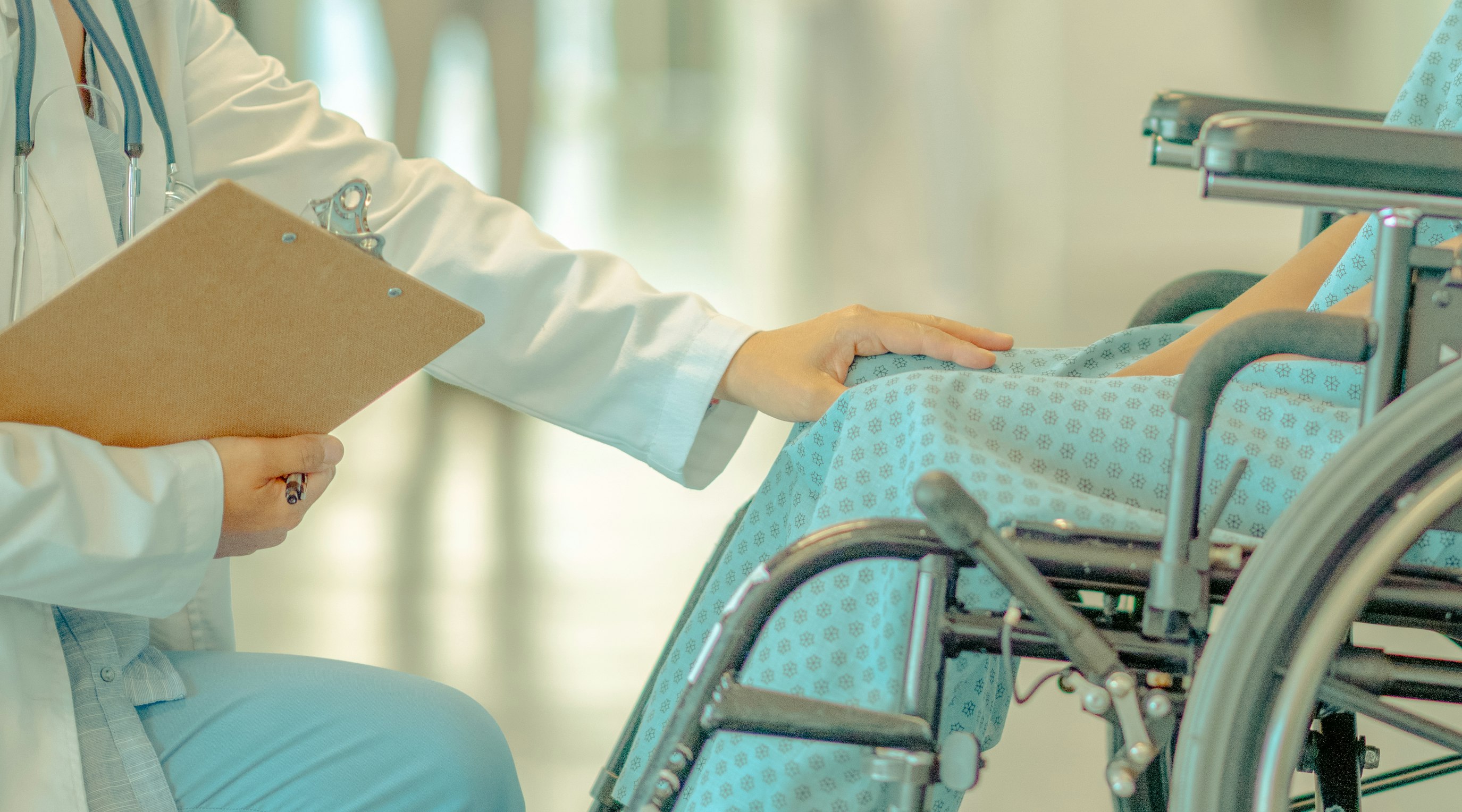A comprehensive guide to cannabidiol and neurological disorders
6 min read
Kerry Charron
Neurological disorders. Varied, potentially devastating, and hard to group into one easy to digest category. They are essentially diseases of the central and peripheral nervous system conditions, and include epilepsy, multiple sclerosis, Parkinson’s disease, Alzheimer's disease and dementia, ALS, Bell's palsy, and a huge range of separate neuromuscular disorders.
Contents
While there are a bunch of conventional treatments, including pharmaceutical medication and brain surgery, these options often come with heavy risks and side effects. Most neurological issues are incurable, but rehabilitation can assist in reducing symptoms and helping sufferers return to a more normal way of life.
A growing number of research studies are highlighting the safety and efficacy of cannabidiol (CBD) to potentially reduce symptoms for neurological conditions. CBD offers general benefits such as overall wellness and improved sleep, but it also has properties that address the symptoms of each specific condition. As a result, patients with neurological disorders are interested in learning about how CBD can improve their health.
CBD cannot cure any neurological issues, but it very well may be a powerful addition to treatment plans.
The importance of CBD in treating neurological disorders
Since studies have shown CBD may be an effective neuroprotectant, it has significant potential to minimise cognitive and mental symptoms that interfere with daily functioning. Patients have reported increased clarity of thought, an elevated mood, and less anxiety due to taking CBD.
CBD’s antioxidant and anti-inflammatory properties very well may promote the health and functioning of brain cells, as well as a reduction in symptoms associated with neurological disorders.
But how does CBD interact with humans? Let's find out.
The endocannabinoid system (ECS)
The endocannabinoid system was only discovered in 1988, but is actually the largest regulatory network in the human body. The ECS is responsible for maintaining homeostasis, which is balance in the systems of the body, and consists of endocannabinoids, receptors, and enzymes.
CBD is a phytocannabinoid (meaning it is a cannabinoid produced by a plant) and it has the ability to also interact with the cannabinoid receptors of the ECS to produce a variety of effects throughout the body. Some of these effects include changes in heart rate, fatigue levels, pain levels, and may even modulate emotional states.
Unfortunately, thanks in large part to the restrictions placed on cannabis over the past 100 years or so, research into the true potential of CBD is still in the early stages. With that said, CBD is showing a huge amount of promise in the areas of pain, inflammation and neurological disorders.
CBD's potential neuroprotective effects
CBD has been shown to be a potentially potent ally in the fight against inflammation. Inflammation in the brain is common with many neurological disorders, such as Alzheimer’s and Parkinson’s diseases. CBD also acts as an antioxidant, which may help remove free radicals and improve brain function.
CBD and specific neurological disorders
CBD may play a slightly different role in countering the symptoms of different neurological disorders.
For example, CBD may be very effective in treating various symptoms experienced with epilepsy. CBD lessens anxiety levels, but it also reduces the risk of neural overactivity or excitability that can lead to a seizure. For ADHD patients, CBD can potentially provide a sense of calm that allows them to maintain cognitive focus during a task.
The following section provides additional information on how CBD can address multiple complaints for each particular disorder:
Epilepsy
Epilepsy is a condition in which the patient has experienced several seizure events. There are various types of epilepsy, and no two epilepsy patients have the exact same set of symptoms.
Some patients suffer from generalised epilepsy, which can manifest in severe seizures with convulsions and complete loss of consciousness to focal seizures. Others have focal epilepsy disorder, which may include brief absence seizures. CBD has been shown to help those with mild to severe forms of epilepsy with less severe side effects than pharmaceutical antiepileptic medication.
Many research studies have indicated that CBD is a safe and effective anti-seizure medication. It is gentle and can be slowly increased so that the patient can find the right balance between managing symptoms and avoiding side effects.
Parkinson's Disease
Parkinson’s disease is a brain disorder that worsens with age. It causes unintended or uncontrollable movements. Tremors, stiffness, and poor balance and coordination are common symptoms.
This paper, titled “Cannabidiol in Parkinson’s disease” discusses the potential use of cannabidiol as a potential treatment option for Parkinson's disease (PD) due to its multiple potential targets of action in the central nervous system. It found that while more research is needed, CBD may offer relief from a range of the symptoms relating to Parkinson's Disease.
Another study found that CBD may have potential as a therapeutic strategy for treating Parkinson's disease PD by targeting the WNT/β-catenin pathway, oxidative stress, and inflammation. CBD medication downregulates GSK-3β, the main inhibitor of the WNT/β-catenin pathway, which could be associated with the control of oxidative stress and inflammation.
CBD is a major component of many cannabis-based medicines used to treat Parkinson's disease.
Multiple Sclerosis
Multiple sclerosis (MS) is a debilitating autoimmune disease that affects the brain and spinal cord (central nervous system). It is most likely caused by genetic and environmental factors.
A 2022 study found that oromucosal spray and oral cannabis effectively reduced pain for treating common MS symptoms such as pain and spasticity.
Safety and Side Effects of CBD
CBD has been found to be safe and well-tolerated in many clinical trials. CBD has less harsh side effects than some of the pharmaceutical medication that is prescribed for epilepsy, Parkinson’s, and other neurological disorders.
Side effects such as stomach irritation, dizziness, nausea, and grogginess can be common, but most patients report that they are mild and easily resolved when use is tapered or stopped.
One way to mitigate negative effects is to avoid taking too much CBD in any one dose. Also, make sure you are using premium products that are free of contaminants and toxic materials.
CBD can intensify the drowsiness caused by other medications, including antidepressants, antihistamines, and benzodiazepines. CBD can also negatively interact with several anticonvulsants and potentially render them ineffective.
It is imperative that before beginning CBD treatment for any neurological pain, you first seek the advice and recommendations of a doctor that has experience in prescribing medical cannabis. Not only will they be able to provide the best dosage advice, but the medical cannabis industry is also placed under much more stringent requirements than the supplement sector. Therefore, you can be sure that you're getting a high-quality product when working with an experienced medical cannabis doctor.
Conclusion
Cannabinoids such as CBD may be a promising treatment option for neuropathic pain caused by neurological disorders. While research is ongoing, there are studies that have found positive results in using CBD to treat various symptoms of epilepsy, Parkinson's disease, and multiple sclerosis, among other neurological disorders.
It is important to note that CBD should always be used under the guidance of a medical professional, as it can have some side effects and may interact with other medications. However, it is generally considered to be safe and well-tolerated when used correctly. Accessing medical cannabis can be challenging due to the stigma surrounding it. However, Releaf makes it simple with our tailored monthly packages, specialist consultations for medical cannabis, and a unique medical cannabis card for protection, all based on your cannabis prescription.
Share article
Did you like this article?
It is important to seek medical advice before starting any new treatments. The patient advisors at Releaf are available to provide expert advice and support. Alternatively, click here to book a consultation with one of our specialist doctors.
Elevate your wellness with medical cannabis
Get comprehensive care, convenience, and confidence with an all-in-one treatment plan.
Am I eligible?Authors
Kerry, with experience as a medicinal cannabis cultivation technician and expertise in business licensing applications, is passionate about developing educational content and advocating for better access to medical cannabis worldwide.
meet our specialist
Editorial Policy
All of our articles are written by medical cannabis experts, guided by strict sourcing guidelines, and reference peer-reviewed studies and credible academic research. Our expert clinical team and compliance specialists provide valuable insights to ensure accuracy when required. Learn more in our editorial policy.
Need more help?











